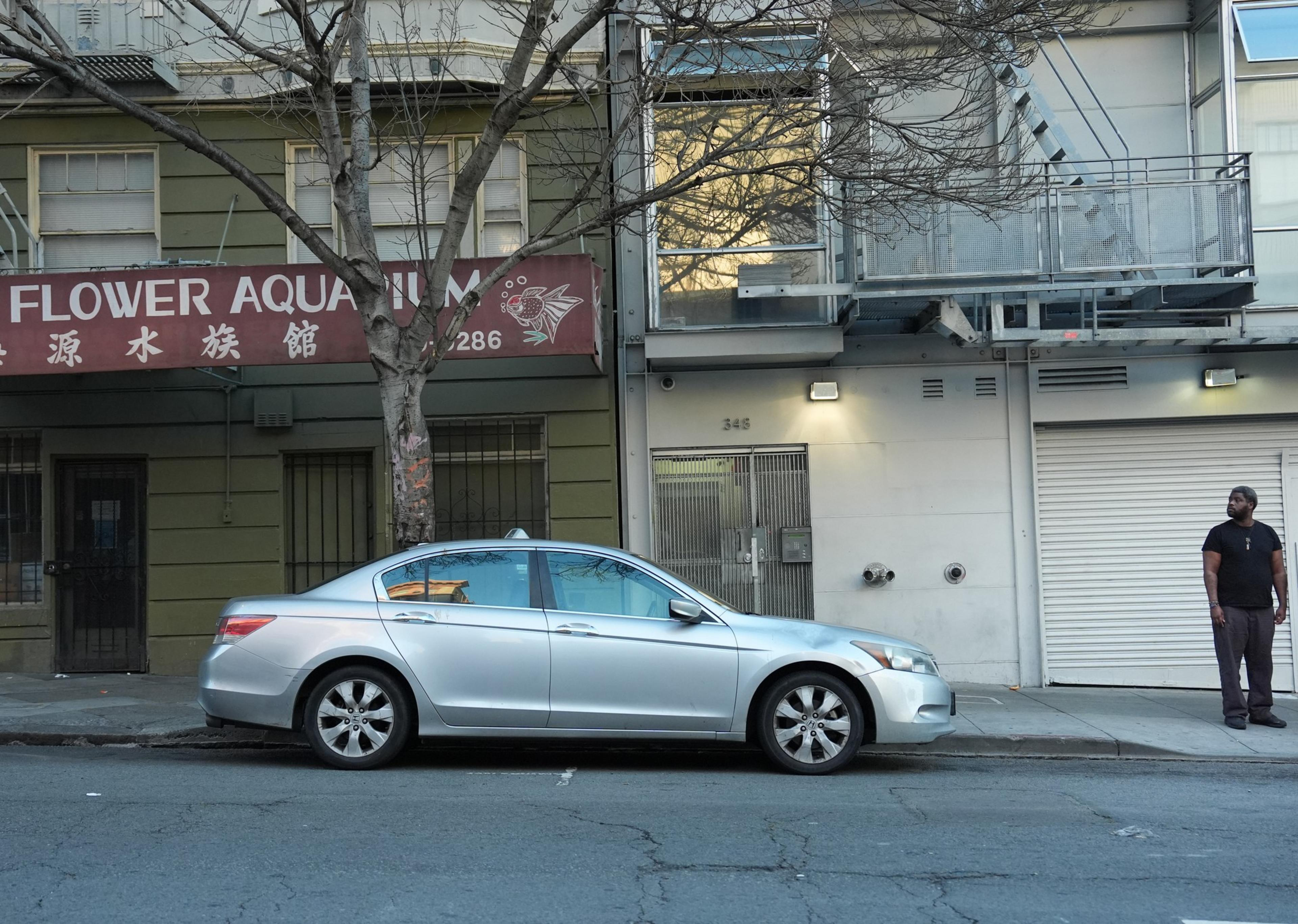William Edward Andrews is part of an exclusive San Francisco club that nobody wants to join.
Andrews is one of the people who owes the most money in parking tickets to the city: He’s on the hook for over $33,000 to the Municipal Transportation Agency from 183 tickets. Standing next to his 2008 silver Honda Accord on Hyde Street in the Tenderloin early Thursday morning, Andrews was in a bit of a pickle.
“Knowing that you owe that much money, there’s nothing you can do but try to pay it back the best you can,” Andrews said. “You can try to do what you can and get rid of the debt. Or bite the bullet and get rid of your car. I need my car.”
Andrews isn’t the only one who has accrued deep debt with the transit agency. The 10 vehicles that owe SFMTA the most outstanding fees have collectively racked up over a quarter million dollars in debt, agency data as of April 1 shows.
A 1997 Acura is in first place with over $38,000 in citations. But a Ford has the most tickets on the list: 295.
Three out of 10, including the Acura, have no proper owners and were reported to the Department of Motor Vehicles as scrapped vehicles. But at least some of the vehicles, including Andrews’ Honda, are on the roads, despite the heavy debt their owners have fallen into with the city. Andrews’ last ticket was on Friday, SFMTA’s citation portal shows. The 10th vehicle on the list, a Kia, received its last citation at the end of February. Other vehicles show penalties from last year.
That some of the cars are still out on the road appears to stem from a policy shift in 2021. That year, the city stopped towing vehicles that were being used for shelter by homeless residents, according to the SFMTA.
Two years later, a court decision stopped the city’s policy of towing cars that had racked up five or more unpaid parking tickets. The case was brought by the city’s Coalition on Homelessness, which argued that the tows were targeting the city’s most vulnerable residents.
“The idea is to stop doing poverty tows,” said the coalition’s Jennifer Friedenbach in an interview. “Where the government is basically confiscating property from people. That’s devastating for people.”

When asked about Andrews and the other car owners who had racked up the fines, Friedenbach called them outliers.
“This is important for working-class and impoverished people that are disproportionately punished,” Friedenbach said about the city’s current rules.
Today, the city can only tow a car in three instances: A car is parked in a tow-away or no-parking zone, a car is in the same place for 72 hours, or a car’s registration has lapsed for more than six months.
“Legally, our hands are tied,” said SFMTA spokesperson Erica Kato.
Andrews said the tickets started to stack up for him a number of years ago. By 2019, he had about $5,000 in fines. He said they originally stemmed from his previous job as a night security guard, when he would park his car during the day and be asleep while the enforcement officers ticketed his car.
Andrews said he is exploring ways to pay off his fines. But he’s run into some issues. He thought his relatively new job as a bus driver for disabled residents—his employer has contracts with the city—would somehow help his case. That hasn’t panned out.
His address in the Tenderloin isn’t covered by the city’s Residential Parking Permit program, which allows drivers to park their cars in certain zones for longer periods if they live nearby. Even if he were eligible for such a permit, he would still need to pay off all of his citations before getting one. (Residents can petition the city to add coverage zones.)
He could participate in a community service program offered by SFMTA. The agency credits $20 per every hour of service completed, but only $1,000 can be wiped away per year. That means Andrews, who is 36, would be nearing 70 by the time he was done paying off the fines this way.

Andrews could enter into a payment plan with the agency. But it requires fine amounts over $500 to be paid off within 16 weeks, meaning Andrews would need to pay about $8,000 a month to meet the deadline. He said with his current job, he does not qualify for the low-income payment plan, which would offer him a bit more flexibility.
The city does have a program for a one-time write-off of all fines (opens in new tab)—but that’s only if you’re homeless, which Andrews said hasn’t been the case except for a roughly half-year period during 2018.
SFMTA Director Jeffrey Tumlin had a simple message for those who have racked up tickets.
“It’s a city,” he said in an interview. “You can’t just completely ignore the parking rules.”
Tumlin added that Andrews should try to talk to someone at the transit agency to figure it out.
“We have actual humans who help people in situations like these find a solution that works and that is fair for both the individual and the city,” Tumlin said.
The SFMTA confirmed they send unpaid tickets to collections; Andrews said he’s unaware of how that’s affecting him. He said a garage would be too expensive.
In November, The Standard found $200 million is owed to the city in outstanding parking tickets from over 1 million citations. The total amount owed is likely higher, however, since the review only stretched back to 2018.
